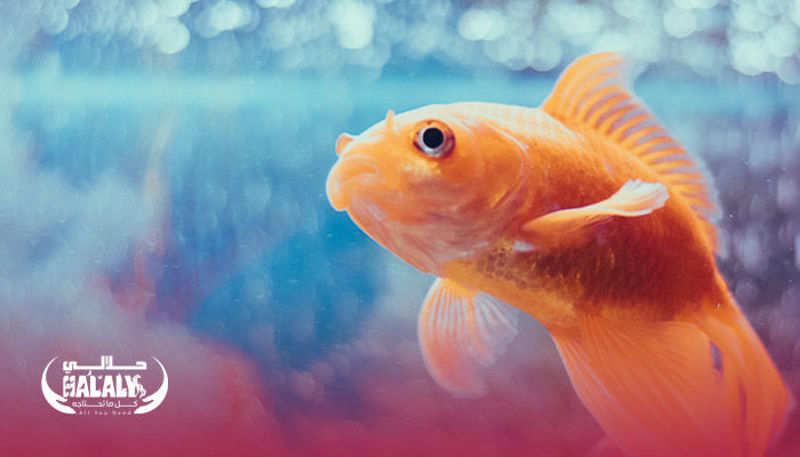Many people now enjoy keeping fish as a fun hobby and a lovely addition to their homes. It is considered an artistic hobby, as those who like to keep fish are usually distinguished by their good taste and love of beauty, nature, and wonderful scenery.
The presence of an aquarium in the house greatly increases its elegance, because, in addition to being a wonderful decorative piece full of different colors, shapes, and lighting, it is full of movement and vitality.
10 Tips Before Buying an Aquarium
Before buying an aquarium, you should know these important tips to protect and preserve fish while enjoying their beauty:
-
Choose an Appropriately Sized Sink
Some may collect a large group of fish in one tank; to enjoy the diversity of their forms and wonderful qualities. But be careful! The presence of a large number of fish in a tank that is smaller than the required capacity, may cause harm to the fish as a result of overcrowding, which leads to an increase in the level of oxygen and in the accumulation of fish waste in the tank.
-
Choose Compatible Aquarium Fish
Before choosing what types of fish you want to keep, you should research a bit for their compatibility with each other. Though most types of aquarium fish tend to live in peace with each other, some kinds of fish tend to be violent towards other species. Always ask a professional before combining different types of fish in a single fish tank.
-
Adjust The Water Conditions to Suit The Fish
When caring for aquarium fish or even aquatic plants, you should check the properties of the water used. The properties of tap water differ from the properties required for an aquarium, as it contains many minerals that we usually need to adjust by adding some biological materials or other additives.
-
Make Sure The Fish Are Acclimated to The Water
Take time to ask about the fish water parameters so you know how similar, or how different, they are to the water parameters at the aquarium you have at home. And remember, before you think about buying an aquarium, you should make sure of the type of fish you want to keep, in order to provide them with the right conditions and environment for growth.
Ask the professional how the fish are acclimated to the water and tank characteristics required for that specific type of fish.
-
Start by Floating The Fish in The Bag
You need to properly acclimate your fish and reduce their stress of being in a new environment and their shock to the new tank’s temperature.
While the fish is in its bag, top the bag with 1/4 cup of water from the tank every five minutes. Then gradually lower the fish inside the bag into the tank, and allow it to come out into the tank water. This process will ensure safe entry for the fish into new waters with minimal risk.
-
Maintain The pH of The Fish Tank
Adjusting the water's pH balance is a key factor in maintaining the health and longevity of aquarium fish. The required water acidity (pH) varies with the type of fish you have; Freshwater fish need a pH between 6.6-6.8, while saltwater fish need a pH of 7.6-8.4.
Another crucial factor is the level of concentration of chemicals in the tank water. So, always ask experts about the appropriate pH balance and concentration of chemicals needed for your type of fish.
-
Adjust The Water Temperature
Just as they need a balanced pH, fish also need a suitable temperature to live and grow. It varies according to the type of fish; For example, freshwater fish need a water temperature of 22 to 28°C, while saltwater fish need a water temperature of 24 to 27°C.
Please be careful to adjust the water temperature for the fish, as any difference in temperature may kill them immediately. You may need to purchase an aquarium heater if you need to warm water for your fish.
-
Do Not Overfeed Aquarium Fish
Fish do not need large amounts of food, on the contrary; Overfeeding the fish can harm them. Overfeeding results in the accumulation of waste due to uneaten food and increased amounts of waste produced by the fish eating more than they really need; they can result in lethal changes in the water chemistry, and algae growth in the aquarium, which turns the water toxic to fish.
-
Make Sure to Change The Tank Water Regularly
To keep your fish healthy, ask a professional about when and how often you should change the water in the fish tank. Changing the aquarium water regularly and at a reasonable rate maintains the stability of important salts and helps avoid an increase in the phosphate level, which greatly affects the health of marine organisms.
-
Keep The Fish Tank and Its Contents Clean
A clean aquarium doesn’t only look great, but it also helps to preserve the health and happiness of your fish. An aquarium should be cleaned regularly because it is a closed system, and is prone to a buildup of substances that can be harmful to the fish living in them. Ammonia or nitrates will build up over time in your aquarium, as well as algae and organic waste, which threatens the lives of all living creatures in the aquarium. These need to be removed to maintain pristine conditions in your tank.























































